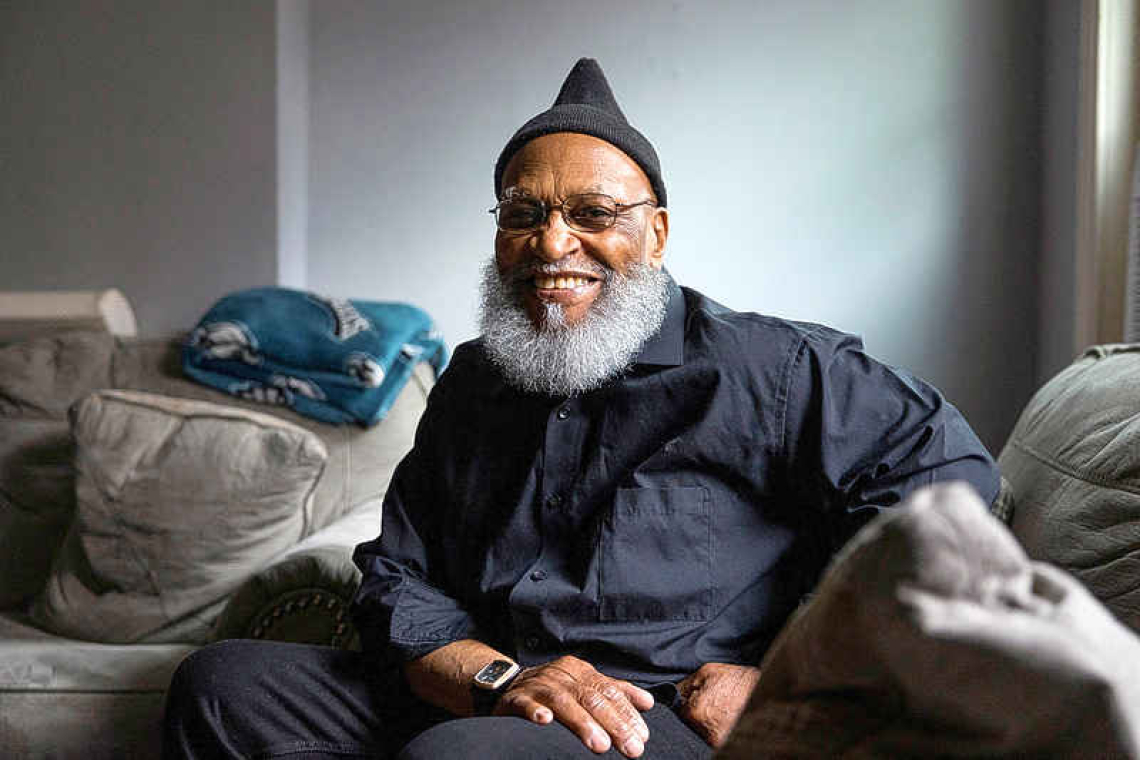PHILADELPHIA--William Franklin, recently released after serving 44 years in prison when his murder conviction was overturned, could face another trial as Philadelphia prosecutors press forward with their case.
The judge who freed him, however, seemed inclined to let Franklin try to restart his life, suggesting Friday that she was open to loosening the rules on his home confinement and allow him to take a job at age 77. Franklin's 1980 conviction, based on tainted testimony, was overturned after the lone eyewitness against him recanted. His case dates to a high-crime era when police and prosecutors were so intent to sew up unsolved homicides that they coerced vulnerable witnesses to fabricate stories and frame innocent Black men.
Many such cases have been exposed by District Attorney Larry Krasner, a former defense attorney, since he was elected in Philadelphia in November 2017. Krasner's office has exonerated 43 wrongfully convicted prisoners - 38 of them Black, three Latino and two white. But Krasner's office has so far told the court it will seek a new trial for Franklin. A spokesperson for the District Attorney's Office declined to comment Friday. During a hearing Friday, Franklin requested permission to leave his home to go daily to a job he has been offered helping former inmates reintegrate into their communities. "I have no doubt that he would really be able to help a lot of people," Common Pleas Court Judge Tracy Brandeis-Roman said in court.
But she put off a decision to give prosecutors more time to consider after Joseph Duffy, an assistant to District Attorney Krasner, said he had only received the request the night before. "He has not been exonerated," Duffy said, noting his office has appealed Brandeis-Roman's order overturning the conviction. "He still faces charges of first-degree murder." Franklin's defense attorney, Joe Marrone, had said he hoped prosecutors would drop the case on Friday. During Friday's hearing Marrone said prosecutors had little evidence on which to base a new trial. Before the hearing, Franklin greeted Reginald Haines, a former parole officer who would be his boss if he were allowed to work at a programme run by a group called Mothers in Charge.
"I'm good, Reg," Franklin told him. "I just don't understand why they're fighting me. Everybody in the world sees that it's wrong." Philadelphia's criminal justice system became known for "testilying," an insider's term made prominent by the Philadelphia Inquirer's investigative reporting, in which police and prosecutors manipulated witnesses into framing the innocent, then leveraged their commissions of perjury or other crimes to force them to stand by their stories. Franklin's case has been linked to a "Sex for Lies" scandal in which Philadelphia detectives granted criminal suspects access to a police interview room where they could be visited by wives, girlfriends or prostitutes in exchange for false accusations.
Brandeis-Roman on Feb. 28 overturned Franklin's conviction after hearing the statements of two "Sex for Lies" witnesses who years later recanted their trial court testimony that framed Franklin and his co-defendant, Major Tillery.







